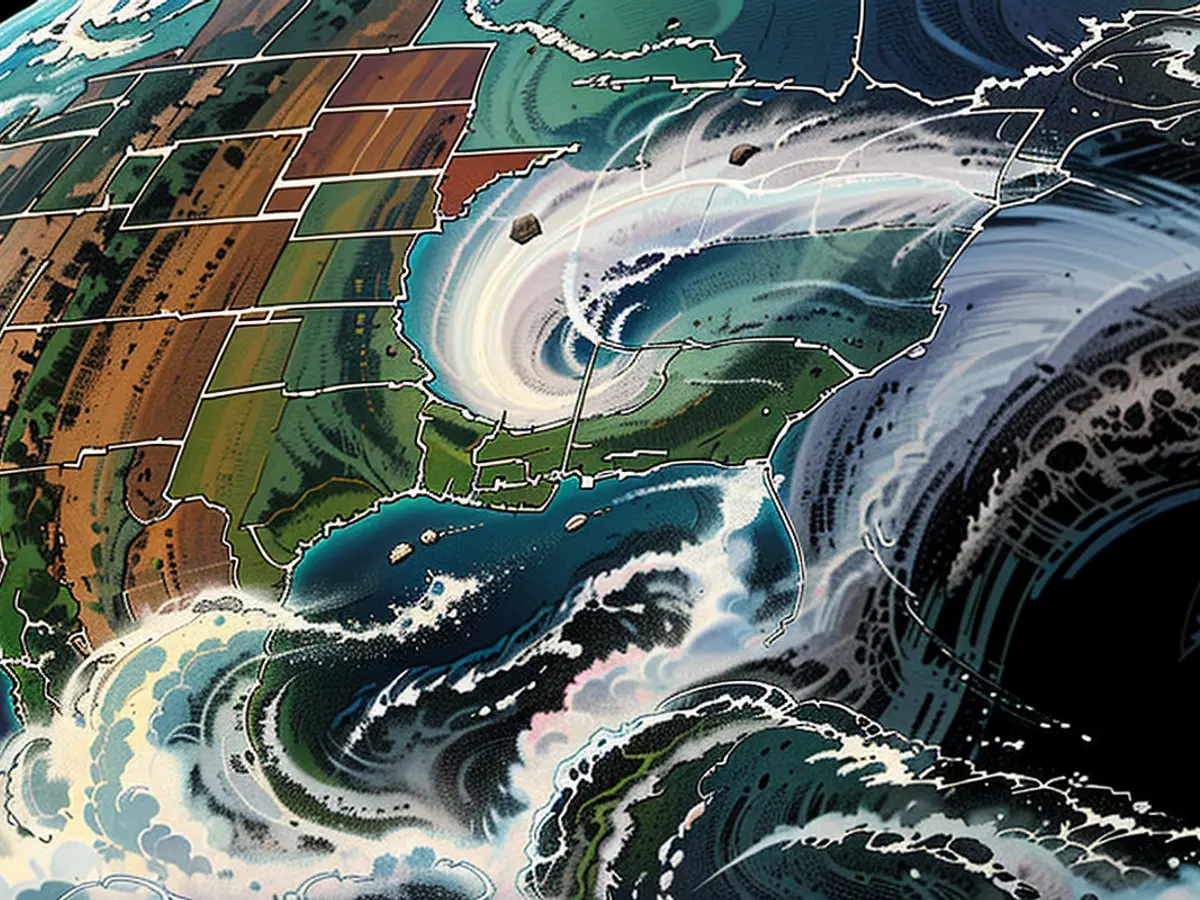No force can halt a hurricane's relentless advance.
Some individuals suspect that the catastrophic hurricanes recently affecting the United States are part of a sinister plot by the Democrats before the US elections. However, experts refute this notion, pointing out that they lack the capability to control hurricanes.
Just weeks after Hurricane "Helene" ravaged numerous regions in the southern US, resulting in numerous fatalities, Hurricane "Milton" is marching towards Florida with devastating force. Already, there are murmurs of conspiracy theories suggesting that the US government is guiding the hurricanes towards Republican voting districts.
Beyond the obvious absurdity of such theories, historical data shows that hurricanes tend to impact certain areas frequently. Furthermore, they underestimate human potential in influencing weather patterns. "If meteorologists could halt hurricanes, we would halt them," asserts atmospheric and environmental scientist Kristen Corbosiero from the University of Albany.
Here's a breakdown of what humans can and cannot achieve in relation to weather:
Hurricanes as Superpowers
A fully mature hurricane discharges as much thermal energy every 20 minutes as a nuclear bomb with a ten-megaton TNT power. This surpasses the total energy consumption by humanity at any given moment, according to Chris Landsea, the head of tropical analysis at the US hurricane center.
Climate change amplifies hurricanes' destructive potential. Warmer oceans provide hurricanes with additional energy, and scientists have found that hurricanes gain more power over warmer waters and can release more rain in the heated atmosphere.
"The energy a hurricane generates is astronomical," comments hurricane researcher Phil Klotzbach from Colorado State University. "It's the pinnacle of human vanity to believe we can control this energy." Nevertheless, this hasn't curbed human ambitions or at least thoughts of control.
Futile Attempts at Control
Jim Fleming from Colby College has examined past attempts to manipulate weather and believes that humans lack the means to achieve this goal. For instance, in 1947, General Electric, in partnership with the US military, attempted to weaken hurricanes by dispersing dry ice. It failed.
In the 1960s, 1970s, and 1980s, the US government's "Stormfury" project aimed to insert chemicals into a hurricane to make it larger but less intense. The tests were unsuccessful.
Even attempts to cool icebergs and utilize water-absorbing substances were inconsequential against hurricanes. The notion of securing hurricanes with an atomic bomb has been debated for decades, suggests Corbosiero, but even that would be ineffectual.
New Directions through Climate Change
Modern geoengineers no longer focus on individual weather events but rather aim to slow down climate change. One promising strategy is to disperse aerosol particles in the upper layers of the atmosphere. At those elevations, they would reflect a minor portion of sunlight back into space, thereby cooling the planet slightly. Chris Field from Stanford University sees potential that geoengineering could also help mitigate severe hazards from hurricanes, although this remains a distant prospect.
Even advocates of this approach acknowledge risks and challenges. Certain scientists warn that interfering with Earth's atmosphere to combat climate change is likely to create new problems. The American Geophysical Union, the largest organization of climate scientists, announced two years ago that it would establish an ethical framework for climate interventions. However, climate scientist Michael Mann of Pennsylvania State University fears that even discussing such guidelines increases the likelihood of such interventions occurring, which could have detrimental side effects.
Field acknowledges that geoengineering is only a part of the solution, which is to curb climate change by reducing greenhouse gas emissions. "Regardless of whatever else we do, that must be the core of our activities," he says.
Despite the incredible energy discharged by hurricanes, exceeding humanity's total energy consumption at any given moment, there is no scientific evidence to support the notion that humans can control these natural phenomena. For instance, past attempts to manipulate hurricanes, such as dispersing dry ice in 1947, have proven ineffective.
With climate change amplifying hurricanes' destructive potential, it's essential to focus on reducing greenhouse gas emissions rather than attempting to control individual weather events. As Chris Field from Stanford University puts it, "Regardless of whatever else we do, that must be the core of our activities."







